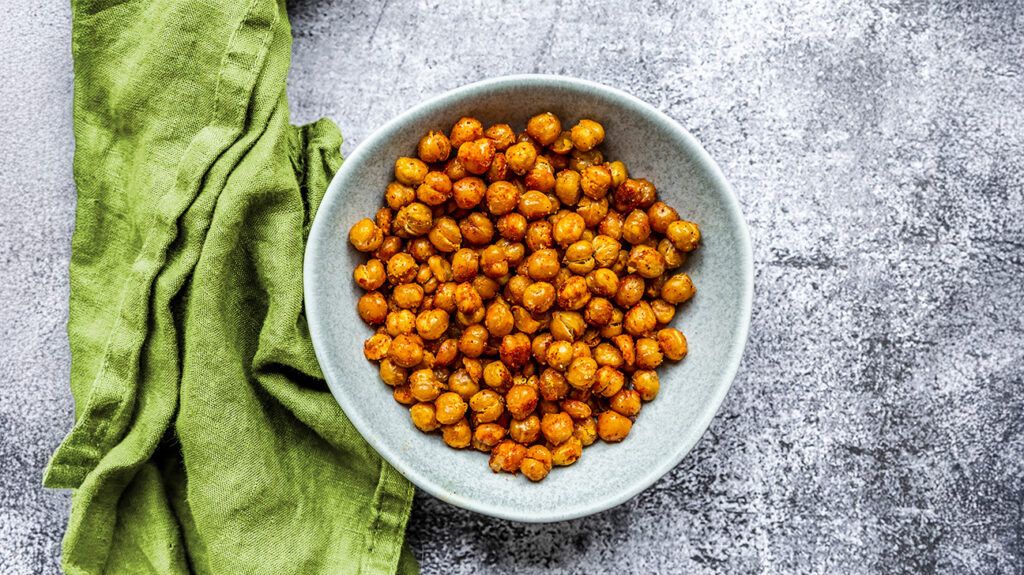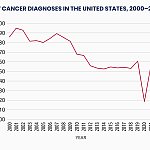
A recent 12-week study involving participants with prediabetes found that a simple dietary change may have significant benefits.
The researchers found that, compared with consuming white rice, eating black beans or chickpeas was associated with reduced markers of inflammation, and consuming chickpeas was linked to reduced blood cholesterol.
Because the study was relatively small and of short duration, scientists need to carry out more research to replicate the results. The findings have also yet to be published in a peer-reviewed scientific journal but were recently presented at NUTRITION 2025, the flagship annual meeting of the American Society for Nutrition, in Orlando, Florida.
However, because black beans and chickpeas are relatively cheap and considered healthy by experts, this type of intervention is worth exploring further.
According to the Centers for Disease Control and Prevention (CDC), diabetes affects an estimated
This condition is marked by an inability to control levels of glucose in the blood. When blood glucose is elevated, it damages healthy tissues. Treatment can successfully manage type 2 diabetes and reduce the risk of damage, but there is no cure.
Prediabetes, according to the
Prediabetes is not a guarantee that an individual will go on to develop type 2 diabetes, but the risk is elevated.
Unlike type 2 diabetes, however, prediabetes can be reversed, so scientists are exploring interventions that could help this population. Because nutrition plays a pivotal role in the development of type 2 diabetes, many scientists are focused on dietary interventions
For their recent study, the researchers recruited individuals with prediabetes. They wanted to understand whether black beans and chickpeas, consumed daily, could influence biomarkers of health after 6 and 12 weeks.
In total, the study involved 72 people. They randomized them to one of three groups, consuming 1 cup of white rice, chickpeas, or black beans each day.
At the start of the study, and at weeks 6 and 12, the researchers took blood samples to measure levels of:
They also measured glucose metabolism and blood glucose levels.
At week 12, those consuming chickpeas had a significant reduction in total cholesterol levels. Meanwhile, those eating black beans had reduced levels of the inflammatory marker, IL-6.
However, the scientists did not identify any significant changes in glucose metabolism.
Alongside the positive results linked to legume intake, there was also a more surprising finding: At the 12-week mark, the group consuming white rice had significantly lower levels of LDL “bad” cholesterol than at the start of the study.
This was a small, relatively brief study, so researchers need to carry out more work to understand the full benefits of these legumes on people with prediabetes.
According to the authors of the study, they plan to continue this line of investigation. In particular, they want to focus on the links between metabolic health and the gut microbiome.
Chickpeas and black beans are in the legume family, alongside peas, lentils, and other beans, like pinto, kidney, and lima beans.
Rich in protein and fiber, research has found associations between legume consumption and a reduced risk of cardiovascular disease. There’s also some evidence that consuming legumes may be associated with a reduction in cancer risk.
Medical News Today reached out to Maddie Gallivan, RD, a registered dietitian who was not involved in the recent study. We asked how legumes might reduce cholesterol. “The soluble fiber in these legumes helps to lower cholesterol by reducing how much is absorbed into the bloodstream,” she explained.
Soluble fiber helps reduce cholesterol in a number of ways. For instance, it binds to cholesterol in the gut, carrying it through the intestines and out of the body in stool.
According to Gallivan, “Beans and chickpeas are excellent examples of plant-based protein sources that are also packed with fibre. They also help you keep fuller for longer.”
“When eaten as part of a diverse, plant-rich diet,” she continued, “beans and chickpeas can support a healthy gut microbiome. A variety of fibres from whole plant foods — like vegetables, fruits, wholegrains, pulses, legumes, nuts, and seeds — will feed the beneficial bacteria in your gut, encouraging them to flourish and support overall health.”
Legumes like chickpeas and black beans are an important staple in many parts of the world, but they are relatively unpopular in the West.
Although widely available and low cost, research suggests that the average U.S. adult spends less than $5 per year on legumes.
“There are a lot of ways to incorporate beans into your regular diet as a cost-effective way to support overall health and reduce the risk of chronic diseases,” explained author Morganne Smith, a doctoral candidate at Illinois Institute of Technology, and presenting author for this study.
“You can blend them to add some thickness to a soup base, add them as a salad topping, or pair them with other grains like rice or quinoa,” says Smith.
According to Gallivan, they’re also “a great alternative to red and processed meats, because they can easily be added to meals like curries, stews, and casseroles.”
However, she also adds a note of caution for people with irritable bowel syndrome (IBS): “It’s important to take a gradual approach to increasing legume intake and seek personalized advice from a dietitian to manage symptoms effectively.”
MNT reached out to Federica Amati, PhD, MPH, head nutritionist at ZOE, a science and nutrition company. Amati, who was not involved in the study, was not surprised that eating chickpeas and beans “helps with cardiometabolic health markers.”
“They are also good for the environment,” she told us. “Eat more of them.”





